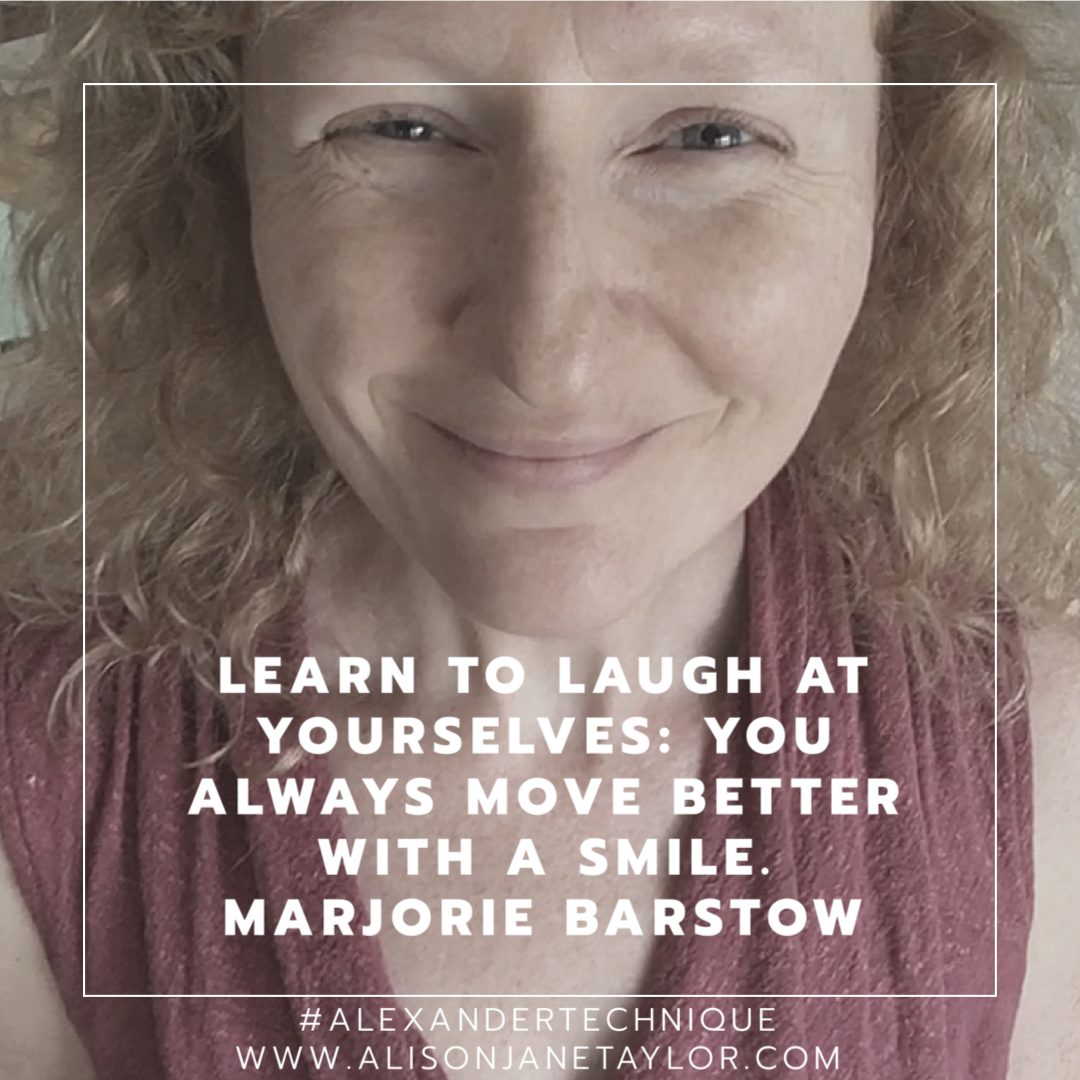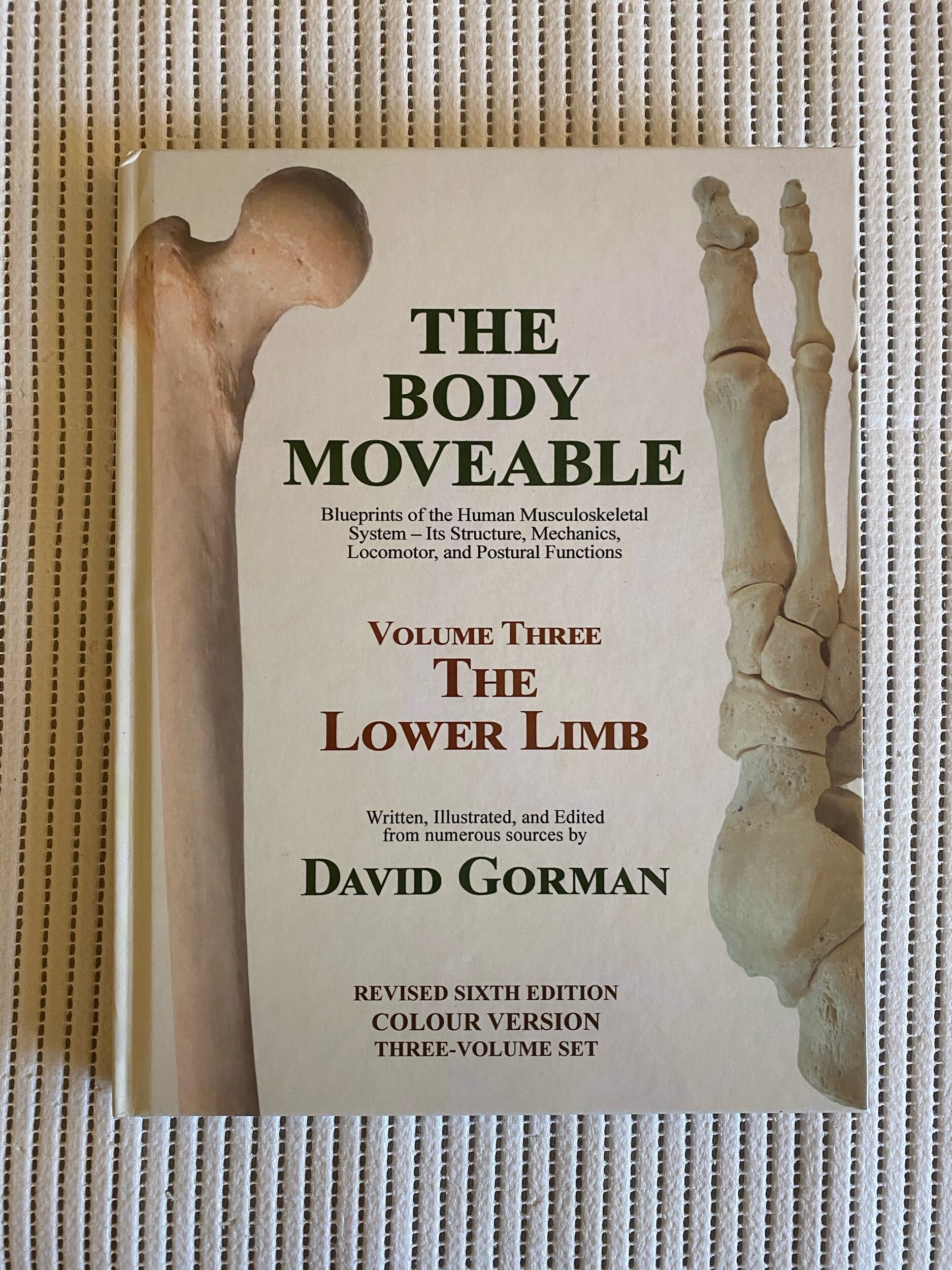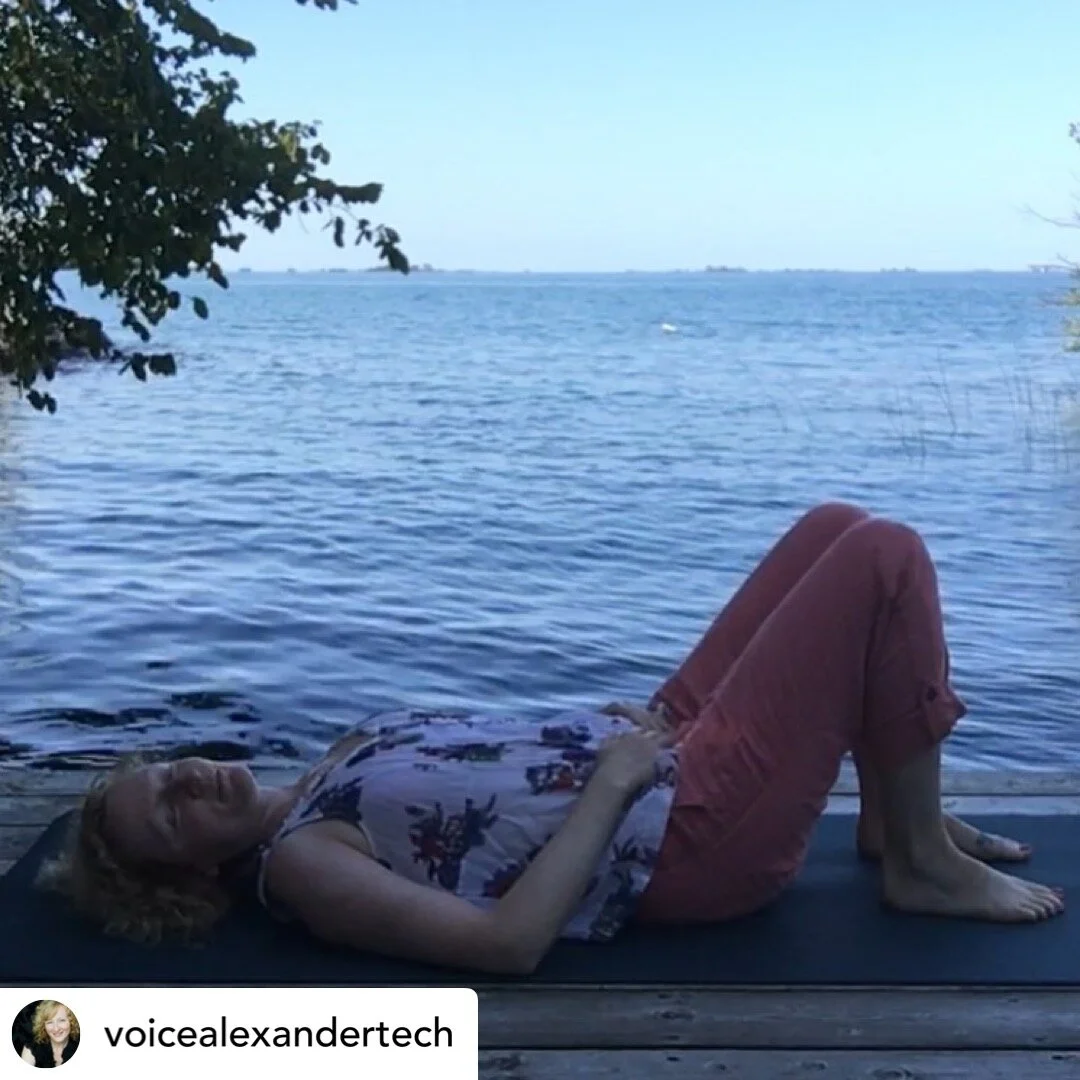I recently had a laryngoscopy for the first time, and I wanted to share about my experience.
For the past two years, I’ve been experiencing a strange sort of “gravel” sound in my voice with increasing consistency. It happens when I’m singing in my middle register, especially when demonstrating in voice lessons with students. Lately, I’ve started to notice the gravelly sound in my speaking voice as well, so I wanted to get the situation assessed to prevent any damage. Luckily, I know an amazing SLP (Speech Language Pathologist), Melanie Tapson, who helped me get a referral to a laryngologist and I was able to get in right away.
WHAT TO EXPECT
A laryngoscopy - or “scope,” for short - is a medical procedure that allows a doctor to look at the larynx (“voice box”) and vocal folds (“vocal cords”) using a tiiiiiny camera - the size of a spaghetti noodle! A tiny flexible fibre-optic camera is threaded up through the nose (as it was for me), or sometimes the doctor will use a rigid endoscope, entering directly through the mouth.
As you can imagine, I was very nervous to have a camera inserted anywhere, let alone into one of my face-holes. Would I be able to breathe? What if I gagged? What if I had a panic attack? What if I couldn’t stand the camera being in there long enough for the doctor to get a good picture?
And then there was the fear that there was something actually wrong with my vocal folds. Do I have nodes (rough, benign nodules on the folds, usually due to vocal strain or misuse)? Will I need surgery? Will I have to stop singing?
My appointment couldn’t have gone more smoothly. Doctor Lin was patient, gentle, and just got on with things. She took a brief history (how am I using my voice? how often?) and asked me to describe the issues I was experiencing. Then she explained the procedure as she was already readying the freezing nasal spray to prep the passage for the camera (spaghetti noodle!). She patiently answered my questions (Will it hurt? - No, it will just feel like a bit of pressure. Will I be able to swallow? - Yes. Will I be able to breathe? - Yes. Can we stop if I get overwhelmed? - Yes, absolutely.) and then sprayed a spurt of freezing medicine into each nostril. The freezing spray isn’t mandatory but most people find it lessens the discomfort of having a foreign object in the nose/back of the throat. The spray trickles down the back of the throat and often spreads freezing into the throat (it tastes disgusting), but the freezing wears off after about 30min. Honestly, the worst part of the whole experience was having my throat frozen. The actual scope part of the appointment took only a few minutes! The camera did feel strange in my nasal passage, but there was no pain at all - just a sort of full feeling and mild discomfort. The doctor asked me to speak on an “ee” vowel at various pitches, sustain a long “eeeee”, and then had me sing a few short vocal exercises on an “ee.” And then it was done and the camera came right out!
I was able to view the video of my vocal folds right away and IT. WAS. FASCINATING. I’ve seen videos of laryngoscopy procedures before so I knew what to expect and what to look for, but this was extra cool because it was footage of the inside of MY body. The doctor said mine was a “pristine” exam (natch), that the folds were healthy with good closure (phew!), and that they’re surrounded by healthy, pink tissues. RELIEF! This whole experience went so smoothly that I’m actually feeling excited for future scopes.
AIN’T NO SHAME
Now that the appointment is over, I want to talk about what it’s been like having vocal issues as a voice teacher and singer. This is a sensitive topic, especially in the voice-users community. Some folks are very public about their vocal health issues; others are private about their own struggles, and/or highly critical/shaming/blaming of teachers and performers who come out about their struggles, so it's difficult to know when/how to talk about vocal health issues and with whom.
When I started experiencing vocal issues a couple of years ago, I felt immediate shame. Unhelpful self-talk like “I should know better” and “I’m a fraudulent teacher” flashed through my head. Instead of practicing a self-compassionate response, or reaching out for support, or doing further research, I kept my vocal health concerns to myself. I thought, “If I just practice harder/better/more efficiently, this will sort itself out.” I was embarrassed when my voice issue popped up while I was teaching, making excuses like “I just ate some cheese” or “I haven’t warmed up properly” or “I have a frog in my throat.” With each occurrence during my teaching, my worry and shame would amplify, until it got to the point where I just stopped singing altogether. I felt discouraged and isolated.
It wasn’t until a voice teaching colleague of mine shared about her voice therapy and scope experiences that I got the courage to get some help. I reached out to my SLP contact Melanie Tapson, and within weeks I had an appointment with a laryngologist (this might sound like a long time, but often the waiting lists for these appointments can be MONTHS LONG). I felt better immediately, just having shared about my troubles and had them normalized by compassionate, knowledgeable professionals.
When my body is hurting, I seek support by getting a massage or reviewing my eating/sleeping habits. When my heart is hurting, I reach out to trusted friends and loved ones for support and understanding. I now know that there is no shame in having a vocal injury. Singers and teachers are vocal athletes - we are using our voices every day in ways that are waaaay beyond the demands of daily conversation. I’m talking about my experience now in the hopes that reading this might help someone reach out for support if and when they need to.
IT TAKES A VILLAGE
I wholeheartedly believe that everyone needs a support team. Human beings need community. We need each other to thrive and belong and be our whole selves. We need to lean on others, and we equally need to be leaned ON. We need both an Inner Circle of Awesome and a Supportive Community of Awesome, the makeup of which will be different for everyone.
My Inner Circle of Awesome includes trusted friends, loved ones, and like-hearted fellows with whom I share my highs and lows. I have a carefully-chosen inner circle of folks who I know will listen and share their experience. These people simply sit with me, whether I’m in a hole or on a mountain, without trying to fix or change me. I also have an extended network of body workers, massage therapists, chiropractors, voice teachers, acting coaches, bloggers, therapists, and colleagues that make up my Supportive Community of Awesome.
As soon as I knew when my scope appointment would be (in my case, the DAY OF because there’d been a last minute cancellation!), I rallied my troupes. I sent texts to my people, knowing that just reaching out to them would calm my nerves, even if they didn’t write me back (spoiler: they wrote back IMMEDIATELY with support and high fives).
My singing/teaching colleague sent me detailed accounts of HER scope experiences so I’d know what to expect and what kinds of questions to ask when I was in the room. My voice teacher squeeeeeed with me over my scope video. My SLP texted me immediately with words of encouragement, reminding me that this was just the first step in an exciting process of exploration and discovery as I learn more about my amazing instrument. My husband LEFT WORK to be with me at the appointment, to show me cat videos in the waiting room and to take notes during the exam. And most importantly, to buy me a fancy iced beverage when it was all done (you've gotta give yourself something good to look forward to!).





















